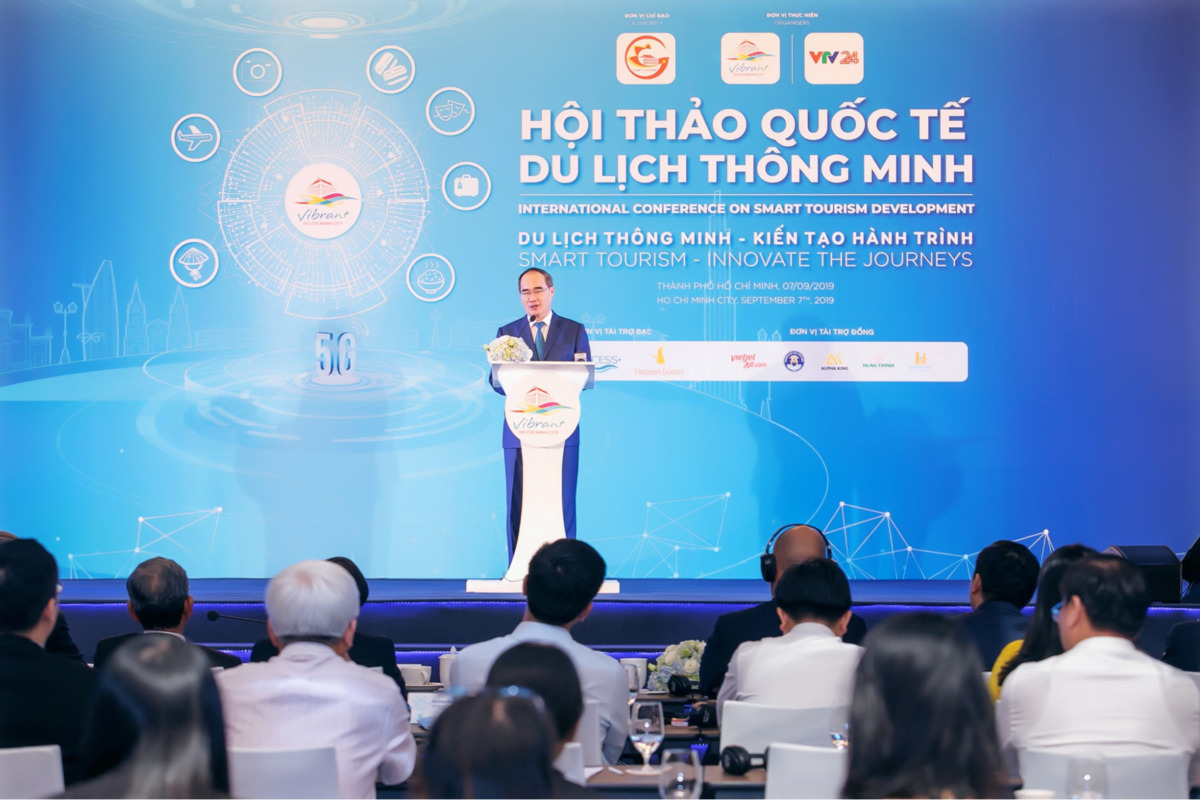Today, tourism developed on online data platforms—connecting solutions, organizations, and methods to create increasingly attractive and convenient forms of tourism—is becoming a rapidly growing trend.
Today, tourism developed on online data platforms—connecting solutions, organizations, and methods to create increasingly attractive and convenient forms of tourism—is becoming a rapidly growing trend.
By building smart information systems along with synchronized solutions, tourism businesses and citizens are provided with an increasingly convenient and superior development environment. Citizens and businesses can use tourism services at different levels and are provided with information about these services in a transparent, convenient, and timely manner. New technological applications in the tourism sector will gradually help minimize human effort, aiming for economic and social development.
The specific goal of smart tourism is to bring mutual benefits to all four stakeholder groups: state management agencies, tourists, local residents, and businesses operating in the tourism sector, as follows:
Benefits for state management agencies for tourism and tourist destinations:
- Increase the efficiency of tourism industry management, ensure security and order, and comprehensively manage tourism activities in the area.
- Promote tourism with a focus on developing both international and domestic markets.
- Increase budget revenue from tourism.
- Manage, monitor, and supervise existing issues such as unlicensed tourism, violations of tour guide regulations, business activities of enterprises, and issues of tourism security and food safety.
- Enhance the capacity and work efficiency of staff to handle an increasing number of tourists.
- Grasp tourism data to enable accurate forecasting and decision-making for breakthrough development.
Benefits for tourists/local residents:
- Enhance the travel journey experience.
- Look up, receive, and grasp information quickly.
- Save time and costs for tourists.
- Be offered outstanding, safe, and friendly experiences.
- Encourage interaction and information exchange.
- Ensure safety and security during travel.
Benefits for businesses:
- Expand business and promotional opportunities, contributing to increased revenue.
- Create chain linkages and develop complete tourism service product chains.
- Report to management agencies conveniently and quickly.
- Save time and costs in promotion, administrative, and legal procedures.
Therefore, considering the overall global technology context; the guidance and direction of the Party, the State, and Ho Chi Minh City; the needs of state tourism management agencies; the needs of businesses; and especially the needs of domestic and international tourists visiting Ho Chi Minh City, the development of Smart Tourism for Ho Chi Minh City for the 2021 – 2025 period, with a vision to 2030, through the implementation of smart tourism solutions in the city, is truly necessary and highly feasible.
To ensure that the development of Ho Chi Minh City’s Smart Tourism Project is practical and highly feasible, the Department of Tourism has implemented many solutions to gather information and data, including organizing an international conference on smart tourism to meet and listen to experts from state management agencies, businesses, and training institutions.

Photo 1. Mr. Nguyễn Thiện Nhân – Secretary of the Ho Chi Minh City Party Committee, speaking at the International Conference on Smart Tourism.



